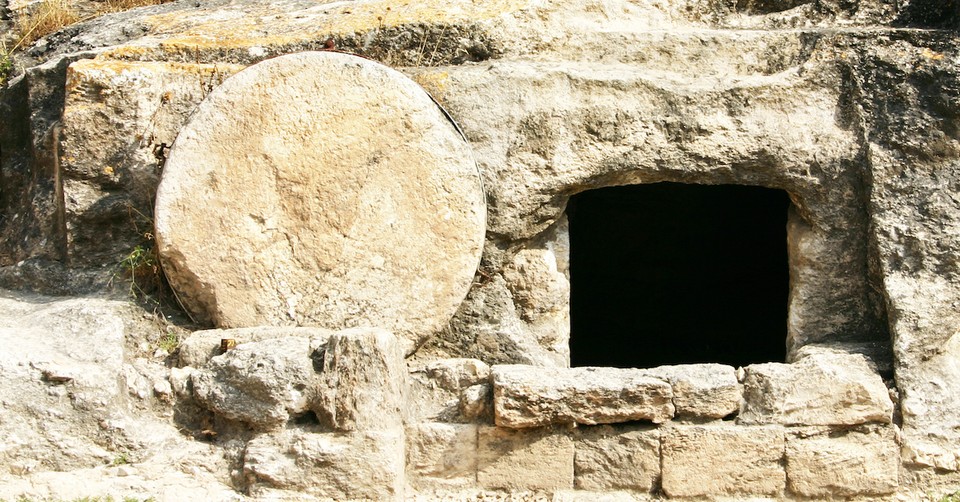Did Jesus Really Rise from the Dead? 4 Confirmations That We Serve a Risen Lord

Easter is quickly approaching and many of us are turning our thoughts toward the Resurrection of Christ. Easter is a time to rejoice in such a central tenet of the Christian faith. Easter is also a good time to ponder the truth of Christianity more deeply, and specifically look at the evidence for Christ's Resurrection.
It is so important as a Christian to be assured of the truth of the Resurrection because as the Apostle Paul states, “If there is no resurrection of the dead, then not even Christ has been raised. And if Christ has not been raised, our preaching is useless and so is your faith” (1 Corinthians 15:13-14).
To that end, here are four points of are evidence that Christ truly did rise from the dead and we have much to rejoice about this Easter.
1. The empty tomb
The biblical accounts tell us the tomb was empty, but even more than that, there are two specific pieces of evidence that confirm the truth of the empty tomb.
Doctor Gary Habermas, a biblical scholar and Christian apologetics professor at Liberty University, says that firstly, it is significant that the witnesses to the Resurrection were women. During the time period of Christ, women were not considered the most reliable witnesses, so, Habermas asks, why would early proponents of Christianity record that women were the first witnesses of the empty tomb if it wasn’t really true? It is improbable that they would choose women, so therefore, it must simply be consistent with how events really happened.
Secondly, Habermas gives what he calls the “Jerusalem factor” as evidence. Jerusalem was where Jesus was well-known, and early believers often pointed to the tomb in which he was buried so that skeptics could look for themselves. Again, why would early Christians say that Jesus’ Resurrection took place in Jerusalem when they could have said it took place in Rome or some other place where people would not be so interested in seeing the tomb for themselves if Jesus did not really rise and the tomb was not really empty?
2. Jesus's disciples truly believed Jesus rose from the dead, and thus they were willing to die for their faith
Habermas notes that scholars acknowledge that the disciples truly believed in the central tenets of Christianity--Jesus's deity, death, burial, and resurrection. “The disciples had experiences that they thought were appearances of the risen Jesus,” Habermas said in an interview. The disciples were so sure about Jesus's Resurrection that they were willing to put their lives on the line, and many of them became martyrs for the sake of the Gospel.
But perhaps the disciples were deceived, perhaps they were hallucinating, some skeptics have suggested. We must remember, however, that Jesus's Resurrection was not proclaimed by isolated people. Jesus appeared to the women, then he appeared to all his disciples together, then to the two men on the road to Emmaus.
“Because these events happened in groups, hallucinations don't work,” notes Habermas. The other option is that what the disciples proclaimed and believed in was indeed a true message.
3. Even Jesus's enemies were converted
We all assume that our friends will back us up, that they will verify what we say if we need a witness, that they will support us--but our enemies? Most of us would not count on our enemies to testify to the truth of what we are saying.
But two particular enemies of the Gospel later became spokesmen for Christianity. Firstly, James, the brother of Jesus, we are told "did not believe in Him" (John 7:5; Mark 3:21), but later we are told that he is one of the apostles (Galatians 1:19). The Apostle Paul is another example of someone who was a fierce enemy of Christianity who later became a pillar of the early Church.
Why would the biblical writers (who were not collaborating as they wrote the Gospel accounts), each include testimony from Jesus's enemies? One would think testimony from an enemy would be considered less reliable, so if the Gospel writers included it, it must really be how events happened.
4. Early proclamation of the Gospel
We are likely all familiar with the game we played as kids called the "telephone game" in which one person whispers something in the ear of the next person and it keeps going around the circle until the last person says what he/she heard out loud--which is almost never what the original person had said.
This is the complete opposite of what happened with the account of the Resurrection. Early believers began preaching the Gospel immediately. We of course have the account of Peter preaching the Gospel on Pentecost (50 days after Jesus's ascension back into heaven), and biblical scholars trace the preaching of the Gospel to very soon after the crucifixion, says Habermas, so it was unlikely that the message was distorted over the days or months or years before it was proclaimed.
These are just four pieces of evidence for the Resurrection. With research, many more can be uncovered. Hopefully, they will present you with more assurance that Christ truly is who He claimed to be. However, logic and evidence only go so far, and at some point, we all need to make the decision of whether or not we will put our faith in Christ.
Hopefully, many will be confronted with Jesus this Easter season and will choose to trust in the Lord who conquered death and the grave.
Written by Veronica Neffinger, editor for ChristianHeadlines.com. Sponsored by Liberty University, training champions for Christ since 1971; and Liberty University Online, the largest Christian university in the world with over 200 online programs.
Publication date: March 14, 2016
Photo Credit: ©GettyImages/doulos
Originally published March 14, 2016.




